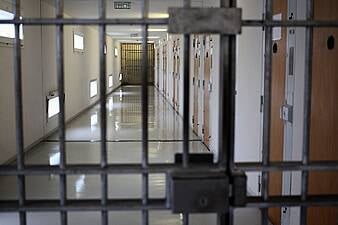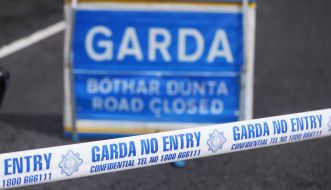A Waterford man who sought to have his conviction for sexually assaulting his partner's daughter overturned on the grounds that the accounts offered by the girl during the trial were inconsistent with a later victim impact statement prepared by her following his conviction has failed in his appeal.
Dean Hurley (53) had denied a single charge of sexual assault against his then 12-year-old stepdaughter at the home he shared with her mother in Co Wicklow on a date between October 1st, 2013, and October 30th, 2013.
He was convicted by a Dublin Circuit Court jury on October 5th, 2021, and sentenced to three years and six months in prison with the final six months suspended.
The young woman gave permission at the original trial for her abuser to be identified in the reporting of his sentence hearing, but asked that she not be named.
The court heard at the time that she had started training as a police officer in England to help other abused children.
Hurley, who was living in hostel accommodation in Waterford city prior to the trial, appealed his conviction and sought leave to adduce new evidence at the hearing of the appeal.
However, delivering judgement in the case at the Court of Appeal, Mr Justice George Birmingham said the three-judge court rejected all the grounds of appeal put forward.
In her evidence during the trial, the complaint told of how following the breakdown of her parents' marriage, her mother and the appellant entered into a relationship and resided with them and her sister.
Abuse
She alleged that when she was 12, she asked the man for a foot massage, and he had proceeded to move his hands higher up her legs and then proceeded to touch her private parts outside her underwear.
She said the appellant subsequently came into her bedroom, saw that she was crying and started hugging her and apologising. He then asked her if he had touched her “forky parts”, which she took to mean her vagina.
She confided in a school counsellor about what happened the following year and also told her sister and her mother about the incident.
The girl lived with her paternal grandparents thereafter and subsequently moved to the UK to live with her father.
The appellant had appealed his conviction on four grounds and sought leave to adduce additional evidence, namely an unedited victim impact statement that came into existence after his conviction.
He claimed his conviction was unsafe in circumstances where the accounts offered by the complainant prior to and during the trial were materially inconsistent with the unedited victim impact statement prepared by the complainant post-conviction.
However, in their judgement, the three judges said they were not persuaded that if the statement had been available to the defence at the time of the trial before the jury it might have had a material and important influence on the result of the case.
They said the new evidence the appellant sought to introduce did not contradict or impugn in any way the complainant’s core allegation.
The court also rejected all four grounds of his appeal. These included that the trial judge erred in admitting the evidence of the complainant about an alleged confrontation with the appellant after he had learned she had made an allegation of sexual assault against him on the grounds that it was “hearsay”.
The complainant alleged the appellant had said: “I didn’t f***ing do that.” The judges agreed with the prosecution’s position that the reaction of the appellant to being confronted with the allegation and the proportionality of that reaction was potentially relevant evidence that could assist the jury in assessing the “credibility of relevant actors”.
Satisfied
Mr Justice Birmingham said the court was also satisfied that the trial judge was right to regard the complaints made to two of the girl’s schoolfriends as having satisfied the conditions for admissibility.
The court also rejected grounds three and four of the appeal, which related to the failure to direct an acquittal at the close of the prosecution’s case in circumstances where the particulars of the count on the indictment, namely the date of the offence, did not accord with the evidence and the claim that the trial judge erred in permitting the prosecution to amend the range of dates referred to in the indictment.
The judges said the law is quite clear that an application to amend the indictment can be made at any stage and there is discretion to refuse such an amendment where to do so would enure to the legal prejudice of the accused.
“However, in this case there was no legal prejudice to the appellant in granting the amendment,” the judgement stated. “The case that was being made against him and that he was seeking to defend was crystal clear.”
They said the law is also clear that considerable latitude has to be granted with respect to the amendment of an indictment to take account of uncertainty as to dates where you are dealing with sexual offences involving victims who were very young at the time.

“It is entirely understandable that there may be uncertainty as to dates, and that this may need to be accommodated in terms of amendment to formal pleadings,” they added. “In the circumstances, we are in no doubt that the trial judge was entirely correct in exercising her discretion to allow the amendment sought by the prosecution and to refuse the application for a direction.”
The judgement noted that in the circumstances, the three judge court was not disposed to uphold the grounds of appeal and said the appeal against conviction must be dismissed.
If you have been affected by any of the issues raised in this article, you can call the national 24-hour Rape Crisis Helpline at 1800-77 8888, access text service and webchat options at drcc.ie/services/helpline/, or visit Rape Crisis Help.
In the case of an emergency, always dial 999/112.







